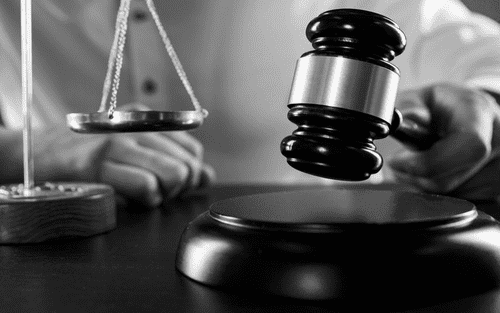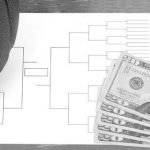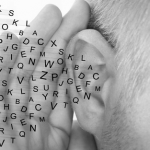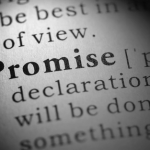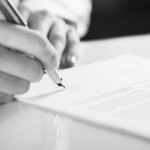NCAA Interim Policy
Sweeping changes are taking place in college athletics. On July 1, 2021, the NCAA put into effect an interim policy on name, image and likeness (NIL) rights. According to a statement released by the NCAA, the policy provides the following guidance:
- College athletes can engage in NIL activities consistent with their local state laws.
- College athletes who live in a state without specific NIL laws can engage in NIL activities without violating NCAA rules related to NIL.
- College athletes can use a professional NIL service provider.
- College athletes should report NIL activities consistent with their local state laws.
This interim policy applies to all levels of NCAA-affiliated schools (Division I, Division II, Division III). The interim policy will remain in place until federal legislation or new NCAA rules are adopted. School conferences are also able to adopt their own NIL policies.
What Are NIL Rights?
Prior to July 1, 2021, college athletes were prohibited from profiting off their name, image or likeness and still keep their eligibility. That is, the athlete, no matter how famous, could not make one dime off signing an autograph, or a percentage of profits from the sale of that athlete’s jersey at the team store, or selling individual awards, or an endorsement deal, or appearing in video games, or becoming a social media influencer.
For decades, college athletes have been the face of a university during a particular sports season (e.g., Zion Williamson at Duke, Kyler Murray at Oklahoma, Sabrina Ionescu at Oregon, Paige Bueckers at UConn, and all the way back to Bo Jackson and Brian Bosworth). However, these athletes received no legal compensation for their jersey sales or having their no-named electronic doppelganger embedded into a video game. The NCAA was free to use the athlete’s name, image or likeness to sell merchandise without giving the athlete, who was the likely reason for the sale, any share of the profits.
All that has changed. NIL rights now belong to the athlete. An athlete has control over how the athlete’s NIL will be used and can profit off his or her own NIL without the NCAA getting in the way. The examples are endless. An athlete no longer has to choose between playing sports and a lucrative career outside sports.
Local NIL Laws
The NCAA policy states college athletes must comply with local NIL laws to be in compliance with the NCAA’s interim policy. Currently Minnesota has not passed a law on NIL rights. However, one has been proposed in the Minnesota legislature. Because there is no law in place, some universities, like the University of Minnesota, have implemented their own policies.
North Dakota has not passed a law on NIL rights. Because the North Dakota legislature meets every two years, and the 2021 legislative session has ended, it is unlikely North Dakota will address this issue until the 2023 legislative session. Until then, universities like NDSU have implemented their own policies.
Since our local states don’t have any NIL laws, what can we expect to see in the future? There are several regional states that currently have NIL laws on the books or will soon have NIL Laws in place, including Nebraska, Illinois, Michigan, and Montana.
- Nebraska – This state was ahead of the NCAA NIL policy. Effective November 14, 2020, Neb.Rev.St. § 48-3603 states no university may punish or suspend an athlete for earning compensation from the athlete’s NIL. The law further states no college athletic association (read: NCAA) shall punish a university for allowing its athletes to earn compensation from their own NILs. Under Neb.Rev.St. § 48-3604, the athlete has the power to deem any NIL contract as a trade secret that may not be disclosed by the athlete’s university. Under Neb.Rev.St. § 48-3605, the athlete may not enter an endorsement contract if that contract would conflict with the athlete’s own university’s contract with a competitor for the same product (think Adidas for the university vs. Nike for the athlete) and the athlete may not wear a non-competing endorsement during official team activities.
- Illinois – Effective July 1, 2021, Illinois enacted a series of laws for its student athletes. Section 110 ILCS 190/10 allows an athlete to receive market value compensation for the athlete’s NIL, but may not earn compensation in exchange to play at a specific university. Section 110 ILCS 190/15 prohibits a university from preventing its athletes from entering NIL endorsement contracts, but the university may impose reasonable restrictions on the dates and times an athlete may participate in endorsement or promotional activities. It further prohibits an athlete from entering any deal where the athlete is using the university’s name, logo, or brand without written consent from the university.
- Michigan – Effective December 31, 2022, Michigan will enact a series of laws related to NIL for its student athletes. MI ST 390.1732 prohibits an athletic association (read: NCAA) or conference (read: Big Ten) from preventing a university from participating in competition if the university permits its athletes from receiving compensation for their NILs. MI ST 390.1733 prohibits a university from removing eligibility of an athlete who earns compensation from that athlete’s NIL. MI ST 390.1736 prohibits an athlete from entering an apparel endorsement contract if that contract would conflict with the athlete’s university’s existing apparel endorsement contract.
- Montana – Senate Bill No. 248 was approved this year. Effective June 1, 2023, the law will allow athletes to earn compensation from their NIL and to contract with professional representation from an athlete agent. Athletes may enter into contracts as long as those contracts comply with the policy of the individual athlete’s own university. The athlete may not enter an endorsement contract if that contract would conflict with the athlete’s own university’s contract with a competitor for the same product (again, think Adidas vs. Nike). The NIL law does not allow universities to pay athletes directly.
Contact SW&L
If you are a student athlete, or your child is a student athlete, and you have questions about your NIL rights, please contact us!


